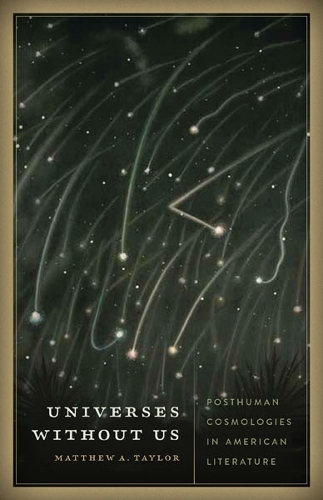
Universes without Us: Posthuman Cosmologies in American Literature
(Paperback)
Publishing Details
Universes without Us: Posthuman Cosmologies in American Literature
By (Author) Matthew A. Taylor
University of Minnesota Press
University of Minnesota Press
1st March 2014
United States
Classifications
General
Non Fiction
Literature: history and criticism
Philosophy
810.9
Physical Properties
Paperback
264
Width 140mm, Height 216mm, Spine 38mm
Description
As Matthew A. Taylor's incisive readings reveal, the heterodox cosmologies of Edgar Allan Poe, Henry Adams, Charles Chesnutt, and Zora Neale Hurston reject the anthropocentric fantasy that sees the universe as a kind of reservoir of self-realization. Taylor shows how posthumanist theory can illuminate American literary texts and how those texts might, in turn, prompt a reassessment of posthumanist theory.
Reviews
"Universes without Us provides incisive and illuminating readings of a wide range of nineteenth- and early-twentieth-century American literature. This book helps us to reconceive American literature through its compelling connections and intersections and to rethink the place of the human in American literature through its reconstruction of both pessimistic visions of a universe without us in Poe and Adams and potentially more livable posthuman existences through African-American literature."Paul Gilmore, author of The Genuine Article: Race, Mass Culture, and American Literary Manhood
Author Bio
Matthew A. Taylor is assistant professor of English and comparative literature at the University of North Carolina, Chapel Hill.
